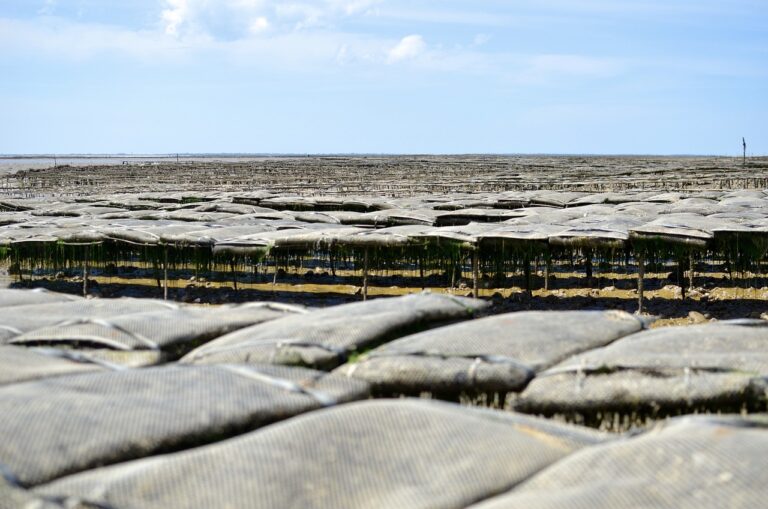Exploring the Role of Meat Processing in Public Health: Golden exchange, Cricbet99, King567
golden exchange, cricbet99, king567: Meat processing plays a crucial role in public health, as it affects the safety and quality of the meat products that we consume. From the slaughterhouse to the packaging plant, every step of the meat processing chain has an impact on public health. In this article, we will explore the role of meat processing in public health, focusing on the potential risks and challenges associated with this industry.
Meat Processing and Food Safety
One of the primary concerns with meat processing is food safety. Contaminated meat products can lead to foodborne illnesses, such as E. coli and salmonella. Proper handling and processing of meat are essential to mitigate these risks and ensure the safety of consumers.
Meat processing plants must adhere to strict regulations set by government agencies, such as the Food and Drug Administration (FDA) and the United States Department of Agriculture (USDA). These regulations cover everything from sanitation practices to labeling requirements, with the goal of protecting public health.
Common practices in meat processing plants include washing, trimming, grinding, and packaging meat products. Each step in the process must be carefully monitored to prevent contamination and ensure the quality of the final product. Quality control measures, such as temperature checks and microbial testing, are also employed to verify the safety of the meat products.
Environmental Impact of Meat Processing
In addition to food safety concerns, meat processing also has environmental implications. The meat industry is a significant contributor to greenhouse gas emissions, deforestation, and water pollution. The mass production of meat products requires substantial resources, such as water and feed, which can strain the environment.
Sustainable practices in meat processing, such as reducing waste and utilizing renewable energy sources, can help mitigate the industry’s environmental impact. Some companies are also exploring alternative protein sources, such as plant-based meats, as a more sustainable option for consumers.
Worker Safety and Health
Another critical aspect of meat processing is the safety and health of workers in the industry. Meat processing plants can be hazardous environments, with risks of injuries from sharp tools, heavy machinery, and repetitive motions. Workers may also be exposed to harmful chemicals and pathogens during the processing of meat products.
Ensuring the safety of workers in meat processing plants requires proper training, protective equipment, and adherence to safety protocols. Ongoing monitoring and evaluation of workplace conditions are essential to prevent injuries and illnesses among employees.
Consumer Awareness and Choice
As consumers become more informed about the food they eat, there is a growing demand for transparency in meat processing. Many consumers are concerned about the use of antibiotics, hormones, and other additives in meat products, prompting a shift towards organic and responsibly sourced meats.
By educating consumers about the processing practices and ingredients used in meat products, companies can build trust and loyalty among their customer base. Offering a variety of options, such as grass-fed beef and cage-free poultry, allows consumers to make informed choices that align with their values and preferences.
The Future of Meat Processing
The meat processing industry is continuously evolving, driven by advancements in technology, changing consumer preferences, and global trends. Innovations such as automation, blockchain, and biotechnology are reshaping the way meat products are produced, distributed, and consumed.
By embracing sustainable practices, prioritizing food safety, and promoting worker well-being, meat processing companies can adapt to meet the demands of a changing market. Collaboration between industry stakeholders, government agencies, and consumers is essential to ensure a healthy and sustainable future for meat processing.
FAQs
Q: Are meat processing plants safe for workers?
A: Meat processing plants can be hazardous environments, but with proper training and safety protocols in place, the risks to workers can be minimized.
Q: How can consumers make more informed choices about meat products?
A: Consumers can research the processing practices and ingredients used in meat products, opt for organic and responsibly sourced meats, and support companies that prioritize transparency and sustainability.
Q: What are some sustainable practices in meat processing?
A: Sustainable practices in meat processing include reducing waste, utilizing renewable energy sources, and exploring alternative protein sources, such as plant-based meats.
Q: How is the meat processing industry addressing environmental concerns?
A: The meat processing industry is exploring ways to reduce its environmental impact through sustainable practices, such as resource conservation and emissions reduction initiatives.
In conclusion, meat processing plays a significant role in public health, encompassing food safety, environmental sustainability, worker safety, and consumer choice. By prioritizing best practices and innovation, the meat processing industry can contribute to a healthier future for both people and the planet.







